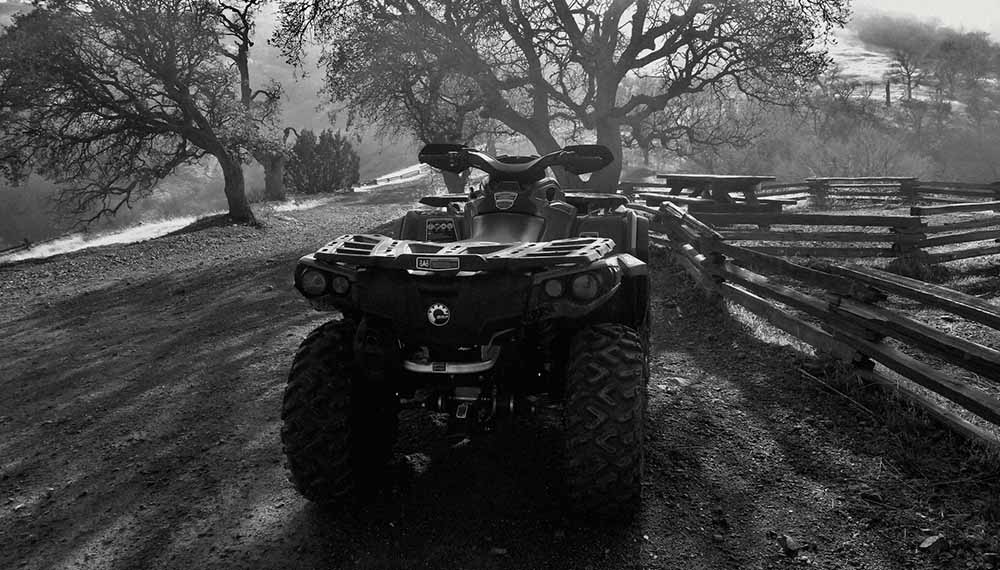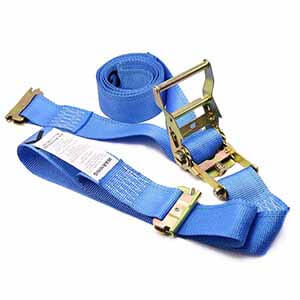All You Need to Know About Transporting UTV

Transporting UTVs is quite common, especially if you are an outdoor enthusiast or a farm owner. You can see the UTV manufacturer transport bulk UTVs to the distributor, the outdoor adventure travel company transport bulk UTVs to forests, deserts, mountains, and adventure parks and offer off-road driving services to tourists, the UTV event organizers or the participating teams in the UTV race will arrange and transport the UTVs to the event venue, etc.
What is a UTV?
The full name of UTV is Utility Terrain Vehicle, it is a larger vehicle than an ATV and is designed with 4 wheels and side-by-side seats and allows more passengers. UTVs can not only provide a good off-road experience but also offer larger storage space for transporting supplies to areas where trucks cannot enter.
Preparation Before Loading UTVs
Before loading the UTVs on the truck bed, we need to do some preparations before transporting them to ensure they can safely be delivered to the destination.
Inspect the UTV
Check the UTV and see if there is any existing damage or mechanical issues. Ensure they are all in good condition.
Clean the UTV
You need to clean the UTV before transportation and remove dirt and debris for easier inspection. Also, avoid this debris damages the UTV during transportation.
Check the Tightness of the Parts
Check if there are any loose items or accessories that will shift during transportation. Tighten them or replace new accessories.
Check Tire Pressure
Ensure the tire pressure is stable to avoid any issues during loading and unloading.
Secure the Fuel Cap
Drain all fuel, coolant, and transmission fluid to safe levels to prevent the UTV from catching fire due to leaks. Then, securely tighten the fuel cap.
Disconnect the Battery
For long-distance transport, disconnect the battery to prevent any electrical issues.
Gather Necessary Equipment
Have UTV tie down straps, ramps, and any other necessary equipment ready for securing the UTV.
Choose the Right Transport Method
Based on the actual situation, such as the number of UTVs, the weight of UTVs, the weather, and then decide whether to use a trailer, truck bed or other transport means.
Plan Route
Ensure you have a clear route to your destination, considering any height, width, or weight restrictions.
Check Regulations
Ensure you comply with any local or interstate regulations regarding UTV transport.

Steps to Load a UTV on Truck Bed
After preparation, now you may want to know the steps of how to load the UTV onto the truck bed. Although, due to different factors, the UTV may not be transported by truck, you should pay attention to important tips.
Measure the Transporting Vehicle
First, you have to measure the truck bed or other transporting vehicle that you are going to use and see if the size of the UTV can fit.
Stationary
Before attaching the ramp to the truck bed, please put on the parking brake of the pickup truck. This can ensure when you tie down the UTV on the truck bed, it won’t move.
Prepare the Ramp
Choose the sturdy ramp that can hold the UTV’s weight and securely put it at the edge of the truck bed.
Check the Ramp Angle
Make sure the angle of the ramp is not too steep to prevent the risk of slipping or tipping during loading.
Fixing the Ramp
Secure the ramp to the truck bed with safety belts or other securing devices to prevent it from moving during loading.
Prepare Your UTV
Check your UTV’s fuel cap and other loose parts to make sure everything is secure. Set the ATV’s gear to neutral.
Drive Up the Ramp Slowly
Drive your ATV carefully and drive up the ramp slowly and evenly. Keep driving in a straight line and make sure the wheels on both sides move at the same time.
Entering the Truck Bed
When the UTV reaches the truck body, continue driving forward until it is completely inside the truck bed.
Fixing UTV
Use the UTV tie downs to secure the UTV in the bed. Make sure the straps are tight, but not too tight to avoid damaging the UTV.
Check Stability
Before hitting the road, carefully check whether the UTV is securely fastened to ensure it will not move during transportation.
Close the Tailgate
Before moving, close the tailgate of the truck to prevent the possibility of the UTV falling off the truck.
How to Tie Down the UTV to the Trailer?
Tie down the UTV is the most important step during side-by-side transportation. Let’s take a look at the steps to secure the side-by-side on the trailer.
Placed in the Right Location
Place the UTV at the right position of the trailer to ensure the weight is evenly distributed the weight over your trailer.
Secure the UTV with Anchors
Put the side by side tie downs on the 4 wheels of UTV and anchor them to the trailer.
Start Tightening with Ratchet
Start to ratchet your straps and add tension to the 4 wheels in order to prevent the UTV shift during transportation.
Eliminate Excess Slack
Ensure there’s no looseness in your straps. Secure any loose ends by wrapping them around the frame of your UTV. Avoid wrapping straps around the axle to prevent potential damage.

What Is the Correct Size of UTV Tie Down Straps?
The size and weight of the UTV are not fixed, so you will need the different working capacities of UTV tie down straps to secure it. Generally, 1-2 inch UTV tie downs are suitable for all the side-by-side in the market, unless the utility task vehicle is specifically customized.
We generally recommend our customers use 1.5 inch UTV ratchet straps to secure the light-duty side-by-side vehicles and use 2 inch UTV ratchet straps to secure heavy-duty utility task vehicles.
Factors You Need to Pay Attention When Tie Down the UTV
When it comes to transporting UTVs, here are some issues you need to pay special attention.
The Loading Weight can not Exceed the Trailer Weight
The weight of UTV loaded behind the trailer can not exceed the Max. cargo capacity. Otherwise, its control and braking capabilities will be affected.
Proper Fasteners are Necessary
You have to use at least 4 pcs of UTV tie down straps to ensure the 4 sides traction is equal. You also need to use wheel chocks and a safety chain as the dual insurance.
Equal Weight Distribution
It is very important to evenly distribute the weight of the UTV onto the trailer. Otherwise, the UTV can easily tip over.
Avoid Sudden Maneuvers
During transportation, don’t stop suddenly, change lanes suddenly, or make sharp turns, as this can easily cause the UTV to roll over.
Driving at a Constant Speed
When transporting the UTV on the road, you’d better drive at a constant speed to ensure better control of the safety.
Regular Check
If you need to transport the UTVs for a long distance, It’s a good idea to get out of your vehicle every once in a while and check that your trailer and tie-downs are secure to ensure safe transportation.
Whether you are a business owner or an individual, knowing how to safely transport UTVs will benefit you a lot.
You may also interested in:

Dave Lee
Dave Lee has amassed over two decades of experience in the cargo control industry, serving as a product manager. Prior to joining Webslingness, he spent three years at a transportation company.


